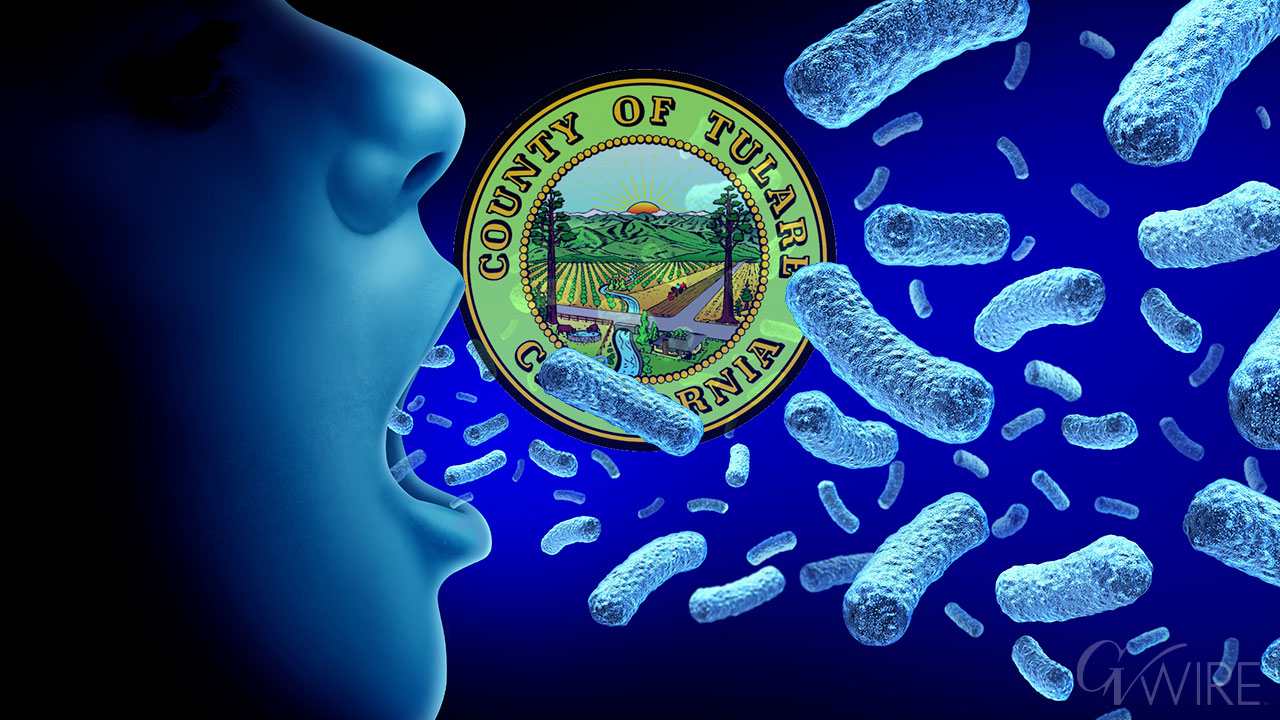As whooping cough cases rise, Tulare County Public Health urges the community to receive proper vaccination to protect themselves and loved ones. (GV Wire Composite/Paul Marshall)

- Tulare County reports an increase in whooping cough cases, which can cause serious illness and life-threatening complications in infants.
- The county is recommending people receive proper vaccination, especially those pregnant or around infants.
- Whooping cough causes severe coughing attacks that can last for months and trouble breathing.
Share
|
Getting your Trinity Audio player ready...
|
Tulare County is experiencing an increase in whooping cough cases and is urging the community to receive vaccinations.

“Infants are particularly vulnerable, and that’s why public health especially encourages people who are pregnant to receive the Tdap vaccine during the 27th through 36th week.” — Dr. Asma Tariq, Tulare County public health officer
The highly contagious bacterial disease can be spread through coughing and cause serious illness, especially in infants.
People with whooping cough experience severe coughing attacks that can last for months.
Infants too young for vaccination are the most vulnerable and pose the greatest risk for hospitalization and death.
Many babies with whooping cough do not cough, but have apnea, life-threatening pauses in breathing. This may cause them to turn blue.
Individuals vaccinated against whooping cough are protected against severe illness and complications caused by whooping cough.
Additionally, the vaccination will help protect infants and young children against serious illness and hospitalization.
This “cocooning” strategy is strongly supported by both the California Department of Public Health and the Centers for Disease Control and Prevention guidelines
Early signs of whooping cough are similar to symptoms of the common cold, such as a runny or stuffy nose and low-grade fever.
Tulare County Recommends Vaccination
As whooping cough cases continue to rise, Tulare County Public Health aligns with CDPH and CDC vaccination recommendations.
To protect infants from whooping cough, health officials strongly urge Tdap (tetanus, diphtheria, pertussis) vaccine in the last trimester (between 27 and 36 weeks) of every pregnancy.
This should be done even if they have received Tdap in the past. Learn more about Tdap during pregnancy here.
“Infants are particularly vulnerable, and that’s why public health especially encourages people who are pregnant to receive the Tdap vaccine during the 27th through 36th week of each pregnancy, preferably during the earlier part of this time as it lowers the risk of whooping cough in babies younger than 2 months,” said Dr. Asma Tariq, Tulare County’s public health officer.
Babies and Toddlers Can Receive Vaccine
After two months, infants and young children can receive their own DTaP vaccines through 4-6 years of age. Babies and children who haven’t had all the recommended doses are more likely to have serious complications.
Additionally, children ages 11 or 12 should get vaccinated. This is required for enrollment in seventh grade in California.
Adults should get an updated vaccine every 10 years.
Talk to your doctor or pharmacist about which vaccines are right for you and your family.
These vaccines are safe and effective and can be received at the same time as other vaccines.



















